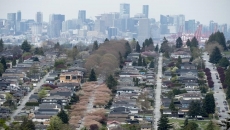Based on emerging evidence of the protection provided by the first dose of a two dose series for COVID-19 vaccines currently authorized in Canada, NACI recommends that in the context of limited COVID-19 vaccine supply jurisdictions should maximize the number of individuals benefiting from the first dose of vaccine by extending the second dose of COVID-19 vaccine up to four months after the first. NACI will continue to monitor the evidence on effectiveness of an extended dose interval and will adjust recommendations as needed. (Strong NACI Recommendation)
- In addition to emerging population-based data, this recommendation is based on expert opinion and the public health principles of equity, ethics, accessibility, feasibility, immunological vaccine principles, and the perspective that, within a global pandemic setting, reducing the risk of severe disease outcomes at the population-level will have the greatest impact. Current evidence suggests high vaccine effectiveness against symptomatic disease and hospitalization for several weeks after the first dose, including among older populations.
- This recommendation applies to all COVID-19 vaccines currently authorized for use in Canada.
- In situations where informed consent included assumptions about second dose timing, jurisdictions may consider offering second doses at shorter intervals for those who provided consent for the vaccine series prior to this recommendation.
- The vaccine effectiveness of the first dose will be monitored closely and the decision to delay the second dose will be continuously assessed based on surveillance and effectiveness data and post-implementation study designs. Effectiveness against variants of concern will also be monitored closely, and recommendations may need to be revised.
BC's top doctor, Dr.Bonnie Henry, has also repeatedly said decision to delay second dose is based on data from around the world and Canada.



.jpg)


